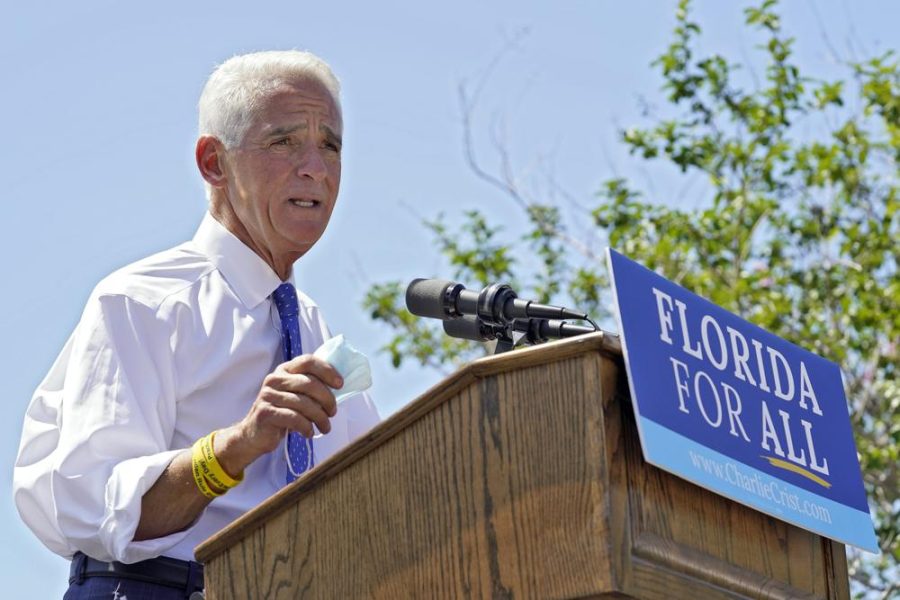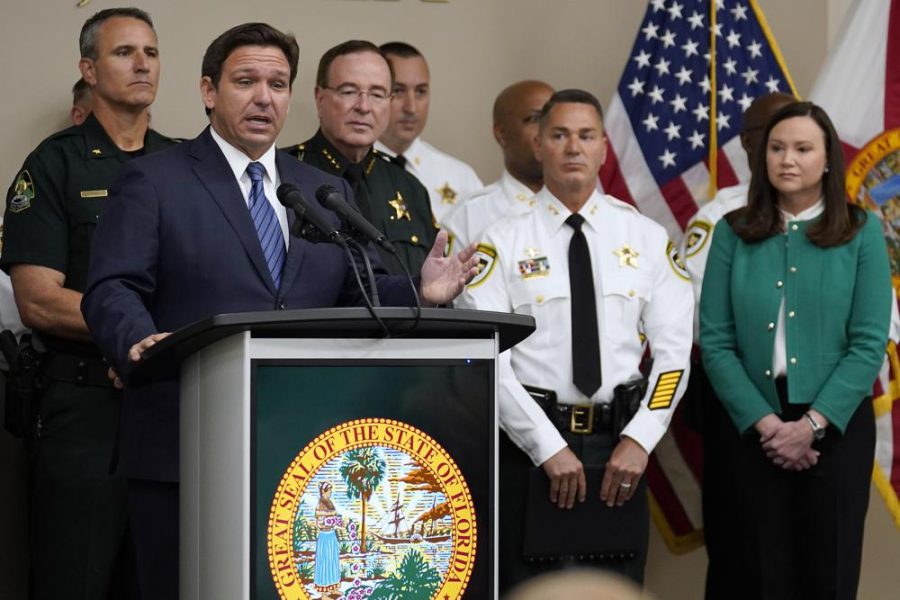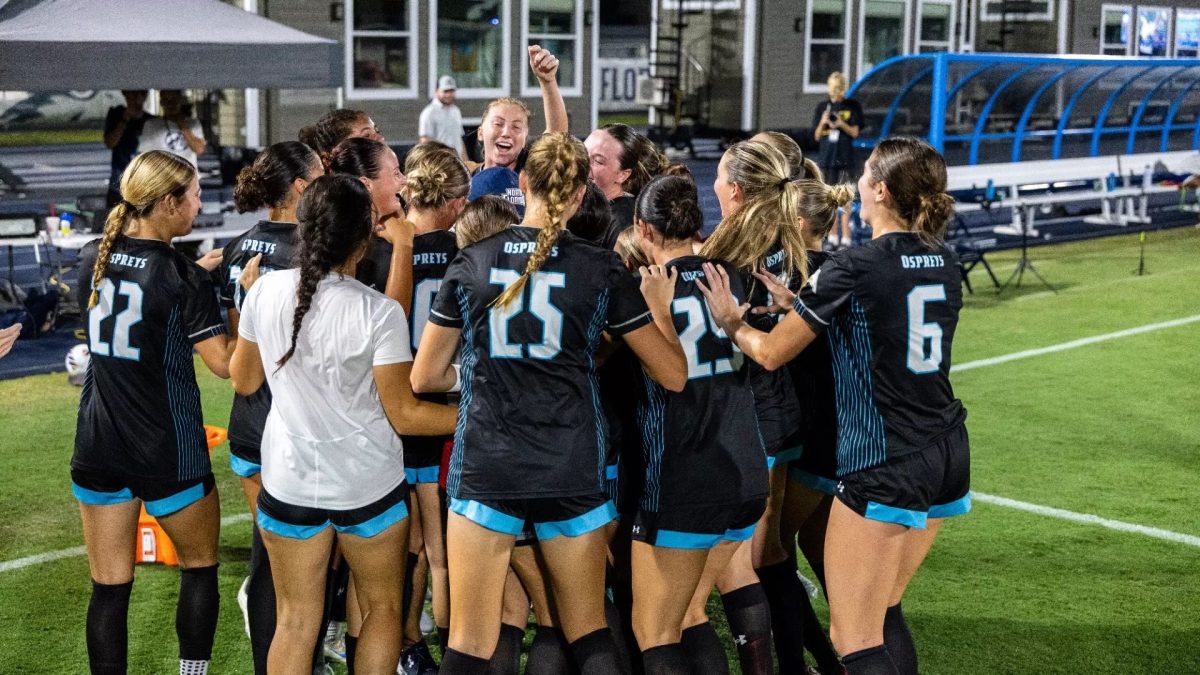A new poll of likely primary voters in Florida from The Public Opinion Research Lab (PORL) at the University of North Florida shows gubernatorial candidate Nikki Fried ahead of Charlie Crist in the Democratic primary, but still seven points behind Republican incumbent Ron DeSantis in a head-to-head race among registered voters.
Consisting of a random sample of 1,624 registered Florida voters, the poll was conducted from August 8 to August 12 and distributed through email with Qualatrics — an online survey platform. Registered Democrats were asked who’d they be voting for in the August 23 primary election for governor and Senate.
The election
In the governor’s race, 47% said they would vote for Nikki Fried, followed by 43% for Charlie Crist; Cadance Daniel and Robert Willis had 4% and 1%, respectively; 6% didn’t know or refused to answer.
For the U.S. Senate seat, the overwhelming majority indicated a vote for Val Demings at 80%, with William Sanchez and Brian Rush tied in a distant second with 4% each. Two percent indicated a vote for Ricardo de la Fuente, and 10% didn’t know or refused.
“Fried seems to have reversed the eight-point lead that Crist had when we asked registered Democrats about vote choice in February,” Dr. Michael Binder, PORL faculty director and UNF professor of political science said in a prepared university press release. “It’s possible that the overturning of Roe v. Wade changed the make-up of this race, and has particularly energized women that are almost 20 points more likely to vote for her.”

The poll then asked registered voters, who said they’d vote in the election, who’d they’d be voting for if the candidates were Nikki Fried and Ron DeSantis.
Fifty percent of respondents said they would vote for DeSantis, with 43% indicating a vote for Fried and 5% said they would vote for someone else. The poll showed similar results when respondents were asked the same question but with Charlie Crist and Ron DeSantis.
Fifty percent of respondents said they would vote for DeSantis, 42% said they would vote for Crist and 6% said they would vote for someone else.
“Fried and Crist are trailing behind DeSantis in head-to-heads,” Binder said in a prepared statement, “but both potential match-ups are much closer than they were when we polled registered voters in February, when DeSantis was up by over 20 percentage points. It is important to keep in mind that these are registered voters, and Republicans are generally more likely to turn out in November.”
For U.S. Senate, Val Demings came out on top in the head-to-head against Marco Rubio, with 48% indicating a vote for Demings and 44% for Rubio, with 7% saying they would vote for someone else.
Cost of living
When asked what they think is the most important problem facing Florida today, a notable 43% of respondents said cost of living was the most pressing issue. Tied in a distant second place are education and abortion/reproductive rights, each with 8%.
Cost of living is a new category that was added after the last poll in February.
“With record inflation this past year, it’s no wonder that Florida voters are concerned about the cost of living,” commented Binder. “Even with signs that inflation may begin to ease, cost of living in Florida does not appear to be improving anytime soon.”
Abortion
Respondents were also asked about the recent Supreme Court decision overturning Roe v. Wade — the landmark abortion case which established the constitutional right to abortion in the first three months of pregnancy. When asked how this decision would impact their voting behavior, 51% said made them more likely to vote in the November midterm election, 46% said it would not affect their decision to vote, and 3% said it would make them less likely to vote.

“Without the protections of Roe, the likelihood of a strict or outright ban on abortion being introduced in Florida increases dramatically, and this looks to be mobilizing Democrats to the polls—78% said the decision made them more likely to vote in November,” Binder said in the prepared statement. “But among Republicans, most (54%) said they are at least somewhat supportive of an outright ban.”
In a related question, respondents were asked if they would support a law making abortion illegal in all cases in the State of Florida, to which the majority (59%) said they would be strongly opposed, and 12% somewhat opposed. Twenty-seven percent said they would support such a law: 13% strongly and 14% somewhat.
Ron DeSantis or Donald Trump?
In a hypothetical presidential primary in 2024 between DeSantis and Donald Trump, registered Republicans were asked who they would vote for. Of those respondents, 47% said they would vote for DeSantis and 45% for Trump; 7% said they would vote for someone else.
“DeSantis and Trump are the two most popular Republican names being discussed for 2024 and DeSantis is edging him out in their home state,” Binder said in a prepared statement. “People are split on whether Trump and DeSantis are friends or merely acquaintances, I guess we’ll really find out after the midterms and the 2024 race starts to heat up.”
“Fake news”
Finally, respondents were asked who they think actually won the 2020 election — Joe Biden or Donald Trump — and whether they believe much of mainstream media to be “fake news.”
Overall, 60% said Biden either definitely or probably won the election, while 38% said Trump definitely or probably won. Regarding mainstream media, 56% said it is fake news, with 42% indicating it is not fake news.
Both questions show a clear partisan split, with 95% of Democrats saying Joe Biden won the 2020 election and 84% saying the mainstream media is not fake news. Among Republicans, 77% said Trump really won the 2020 election, and 93% said the mainstream media is fake news.
“While we see a partisan divide in perceptions of the 2020 election, Democrats seem to be much more certain, with 91% saying Biden definitely won,” Binder noted, “but only 38% of Republicans say Trump definitely won, the remaining 39% saying he probably won.” Binder noted in the UNF press release. “Unsurprisingly, 98% of folks who said Trump won in 2020 also think that the mainstream media is fake news.”
___
For more information or news tips, or if you see an error in this story or have any compliments or concerns, contact editor@unfspinnaker.com.
















